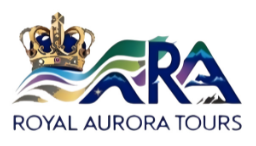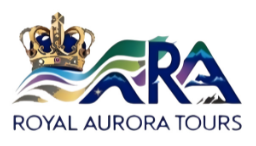The travel industry is a vast and multifaceted sector that encompasses a wide range of services, including transportation, accommodation, food and beverage, entertainment, and tourism-related activities. It is a dynamic field that responds to changing consumer preferences, economic conditions, and technological advancements. Understanding the intricacies of this industry is crucial for travelers seeking to maximize their experiences while minimizing costs.
The travel industry is not just about booking flights and hotels; it involves a complex interplay of various stakeholders, including airlines, hotels, travel agencies, tour operators, and local businesses. Each of these entities plays a significant role in shaping the travel experience. Moreover, the travel industry is influenced by global events, such as economic fluctuations, political stability, and health crises.
For instance, the COVID-19 pandemic drastically altered travel patterns and consumer behavior, leading to a surge in demand for domestic travel and a decline in international trips. This shift has prompted many businesses within the industry to adapt their offerings and marketing strategies. Understanding these trends can empower travelers to make informed decisions about their travel plans, ensuring they take advantage of the best deals and experiences available.
Key Takeaways
- The travel industry is constantly evolving and understanding its dynamics is crucial for a successful trip.
- Timing plays a crucial role in getting the best deals and avoiding peak season prices.
- Utilizing technology and online resources can help in finding the best deals and planning a trip efficiently.
- Loyalty programs and membership benefits can provide valuable perks and discounts for frequent travelers.
- Flexibility and open-mindedness can lead to unexpected travel opportunities and unique experiences.
Timing is Everything
Timing can significantly impact the cost and quality of travel experiences. The principle of supply and demand plays a crucial role in determining prices for flights, accommodations, and activities. For instance, traveling during peak seasons—such as summer vacations or major holidays—often results in inflated prices due to high demand.
Conversely, off-peak travel can yield substantial savings. For example, flying to Europe in late fall or early spring can be considerably cheaper than during the summer months when tourists flock to popular destinations. In addition to seasonal considerations, specific days of the week can also influence travel costs.
Research has shown that flights are often cheaper when booked on Tuesdays or Wednesdays compared to weekends when demand is higher. Furthermore, being flexible with travel dates can lead to significant savings. Utilizing fare comparison tools that allow travelers to view prices across a range of dates can help identify the most economical options.
By strategically planning travel around these timing considerations, travelers can enhance their overall experience while keeping expenses in check.
Utilizing Technology and Online Resources

In today’s digital age, technology has revolutionized the way people plan and book their travels. A plethora of online resources and applications are available to assist travelers in finding the best deals and managing their itineraries. Websites like Skyscanner, Kayak, and Google Flights allow users to compare prices across multiple airlines and booking platforms, ensuring they secure the most competitive rates.
Additionally, these platforms often provide insights into price trends, helping travelers determine the optimal time to book their flights. Mobile applications have also transformed the travel experience by offering real-time updates on flight statuses, gate changes, and even local weather conditions. Apps like TripIt help travelers organize their itineraries by consolidating all travel-related information into one accessible location.
Furthermore, social media platforms can serve as valuable resources for discovering hidden gems and local experiences through user-generated content. Travelers can follow influencers or join travel groups to gain insights into destinations they plan to visit. By leveraging technology effectively, travelers can streamline their planning process and enhance their overall travel experience.
Loyalty Programs and Membership Benefits
Loyalty programs have become a cornerstone of the travel industry, offering frequent travelers an array of benefits that can significantly enhance their journeys. Airlines, hotel chains, and car rental companies often provide rewards programs that allow members to accumulate points or miles for every dollar spent. These points can be redeemed for free flights, hotel stays, upgrades, or exclusive experiences.
For instance, a traveler who frequently flies with a particular airline may accumulate enough miles for a complimentary round-trip ticket after several trips. Membership benefits extend beyond just earning points; they often include perks such as priority boarding, access to exclusive lounges, complimentary upgrades, and discounted rates on future bookings.
By enrolling in loyalty programs and strategically utilizing their benefits, travelers can enhance their comfort and convenience while also saving money on future trips.
Flexibility and Open-Mindedness
Flexibility is an invaluable trait for travelers seeking to optimize their experiences while minimizing costs. Being open-minded about destinations, travel dates, and accommodation options can lead to unexpected adventures and significant savings. For instance, instead of fixating on a specific city or country, travelers might consider exploring nearby alternatives that offer similar attractions at a fraction of the cost.
This approach not only broadens one’s horizons but also opens up opportunities for discovering hidden gems that may not be on the typical tourist radar. Additionally, flexibility with travel dates can yield substantial financial benefits. Many airlines offer lower fares for mid-week flights compared to weekend departures.
By adjusting travel plans slightly—such as departing a day earlier or later—travelers can take advantage of these lower rates. Moreover, being open to various types of accommodations—such as hostels, vacation rentals, or boutique hotels—can enhance the overall experience while providing unique insights into local culture. Embracing flexibility allows travelers to navigate the complexities of the travel industry more effectively while creating memorable experiences.
Negotiating and Bargaining

Accommodations: Where Negotiation Can Pay Off
While booking a hotel room directly rather than through an online platform, travelers may have the opportunity to negotiate rates or request complimentary upgrades by simply asking the front desk staff or management.
Negotiating Prices for Tours and Activities
Many local tour operators are willing to offer discounts for larger groups or during off-peak times when demand is lower. Travelers should not hesitate to inquire about special offers or package deals that may not be advertised online.
Approaching Negotiation with Confidence and Politeness
By approaching negotiations with confidence and politeness, travelers can often secure better rates or added value for their money.
Taking Advantage of Package Deals
Package deals have become increasingly popular among travelers seeking convenience and cost savings. These bundled offerings typically include flights, accommodations, and sometimes additional services such as car rentals or guided tours at a discounted rate compared to booking each component separately.
For example, a traveler planning a trip to Hawaii might find a package deal that includes round-trip airfare from their home city along with a week’s stay at a beachfront resort. Such deals not only simplify the planning process but also provide substantial savings compared to booking each element individually. Additionally, package deals often come with added perks such as complimentary breakfast or discounted excursions that enhance the overall experience without straining the budget.
Keeping an Eye on Hidden Fees and Charges
While planning a trip can be exciting, it is essential for travelers to remain vigilant about hidden fees and charges that can quickly add up and derail budgets. Many airlines impose additional fees for checked baggage, seat selection, or in-flight services that may not be included in the initial ticket price. Similarly, hotels may charge resort fees or parking fees that are not clearly disclosed during the booking process.
To avoid unpleasant surprises upon arrival at their destination, travelers should thoroughly read the terms and conditions associated with their bookings. It is advisable to compare total costs across different platforms to identify any hidden charges that may apply. Additionally, being aware of cancellation policies is crucial; some bookings may appear inexpensive but come with steep penalties for changes or cancellations.
By staying informed about potential fees and charges throughout the booking process, travelers can better manage their budgets and enjoy a more seamless travel experience without unexpected financial burdens.
If you’re interested in uncovering more travel secrets, you should definitely check out The Best Kept Secrets About Travel article on Royal Aurora Tours’ blog. This article delves into lesser-known tips and tricks for getting the most out of your travel experiences. Additionally, you might enjoy reading about the luxurious train journey through the Canadian Rockies in the article All Aboard the Rocky Mountaineer, which offers a unique and unforgettable way to explore the stunning landscapes of Western Canada.
FAQs
What are the best ways to find travel deals?
Some of the best ways to find travel deals include signing up for airline and hotel newsletters, using price comparison websites, and following travel deal websites and social media accounts.
When is the best time to book travel deals?
The best time to book travel deals is typically during off-peak seasons or when airlines and hotels are offering promotions and sales. It’s also a good idea to book in advance for the best deals.
What are some tips for getting the best travel deals?
Some tips for getting the best travel deals include being flexible with your travel dates, considering alternative airports, and being open to different accommodations. It’s also important to research and compare prices before making a booking.
Are there any specific websites or apps that are known for offering great travel deals?
Yes, there are several websites and apps that are known for offering great travel deals, including Expedia, Kayak, Skyscanner, and Hopper. Additionally, some airlines and hotel chains have their own apps and websites that offer exclusive deals and discounts.
What should travelers be cautious of when booking travel deals?
Travelers should be cautious of hidden fees, blackout dates, and restrictions when booking travel deals. It’s important to read the fine print and understand the terms and conditions before making a booking. Additionally, it’s a good idea to be wary of deals that seem too good to be true.



0 Comment